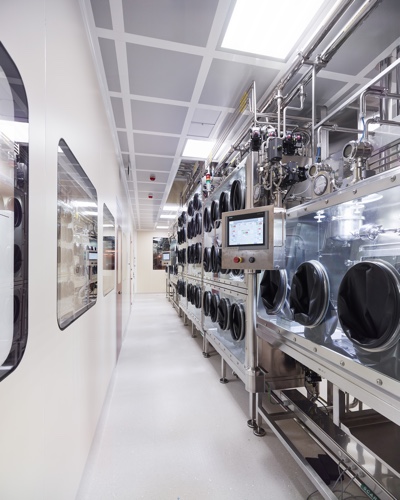Indena typically treats other companies as partners, rather than customers, as most of its APIs are tailor-made to fit specific needs. Extraction, probably the oldest known process used to access active ingredients and the core technology involved in the production of many healthcare ingredients, has, for Indena, become the science of supplying high quality ingredients with the best cost-quality ratio. All this is done using fully equipped phytochemistry labs, pilot plants, analytical labs, industrial plants, isolation and purification/drying, and finishing equipment.
From grams to tons
Globally, Indena is well known for its botanical experience, presence in the market and its high-quality active principles derived from plants. Based on this expertise in the field, Indena has built on its experience in biomass supply chain management, extraction, isolation and purification, semisynthetic chemistry, fermentation and formulation to respond to increased market needs, investing in technology and custom synthesis facilities.
This year, 2018, has been a very important one for Indena’s custom services. In fact, bang on schedule, Indena has recently opened a new kilolab dedicated to highly potent APIs (HPAPIs) — natural, fermentation, semisynthetic and totally synthetic — that capitalises on its experience in the area of high containment. Now the company can offer customised solutions for complex molecule projects, with a particular focus on the supply of APIs, intermediates, HPAPIs and pharmaceutical extracts. All this from small-scale clinical supplies to large commercial batches (from grams to tons), in a fully cGMP-compliant environment and US FDA-inspected facilities.
The new Indena kilolab: top quality service

Indena’s HPAPI contract manufacturing services include a full range of capabilities for HPAPIs across a wide range of scales. The combination of its expertise and top-class facilities delivers products and processes from small-scale cGMP batches for clinical trials to larger commercial manufacturing. The new kilolab is designed to handle the production of toxic substances requiring an occupational exposure limit (OEL) of 20 ng/m3. It boasts the best available security procedures for people working in the lab and deploys the finest technologies for containment to prevent the accidental release of HPAPI materials outside the containment area, including the use of gloveboxes. This level of containment also enables it to handle toxins, which are often used by ADC manufacturers.
The design ensures complete compliance with cGMP guidelines, offers maximum protection against cross-contamination and allows chemists to handle hazardous materials in an environment that provides the highest levels of safety. The lab offers full synthesis and HPAPI contract manufacturing services, including high-power capabilities such as extraction, isolation, purification and synthetic modifications for APIs. Analytical laboratories also form part of this facility, so development to production can be managed on one site.
The facility is divided into three suites. The ground floor hosts the “killing tanks,” so that all toxic substances are inactivated inside the facility before sending them to waste treatment areas. The first-floor houses the R&D kilolab for the experimental phases needed prior to validation. The second floor hosts the gloveboxes dedicated to production, including glass reactors, evaporators, filters and chromatographic columns, and one glovebox for analytical activities. The design of the lab also allows for future expansion.
The investment represents Indena’s response to market demand for contract development and manufacturing services and the increasing reliance by pharma companies on Western suppliers as a risk reduction strategy (compared with the past, when most development and production was outsourced to Asian providers). The situation has changed a lot with the (still ongoing) issue of data integrity.
Indena’s new multipurpose pilot plant
The new kilolab, which is currently engaged in producing a fully synthetic HPAPI, will soon be augmented with a new, multipurpose pilot plant, designed for the grinding, extraction and purification of toxic plants; and, equipped with columns for chromatographic purification and synthesis equipment, it will replicate all the technologies available at Indena in one place.
Indena has been utilising large-scale spray drying for more than 20 years and is now in the process of installing an intermediate-scale spray dryer able to deal with organic solvents and excipients. Building on its experience and tradition of partnering with client companies, Indena aims to systematically tap into any opportunities that are complementary to its expertise, such as the synthesis of difficult molecules. Projects already under way are at different stages of development, from early stage to large-scale industrial production.
